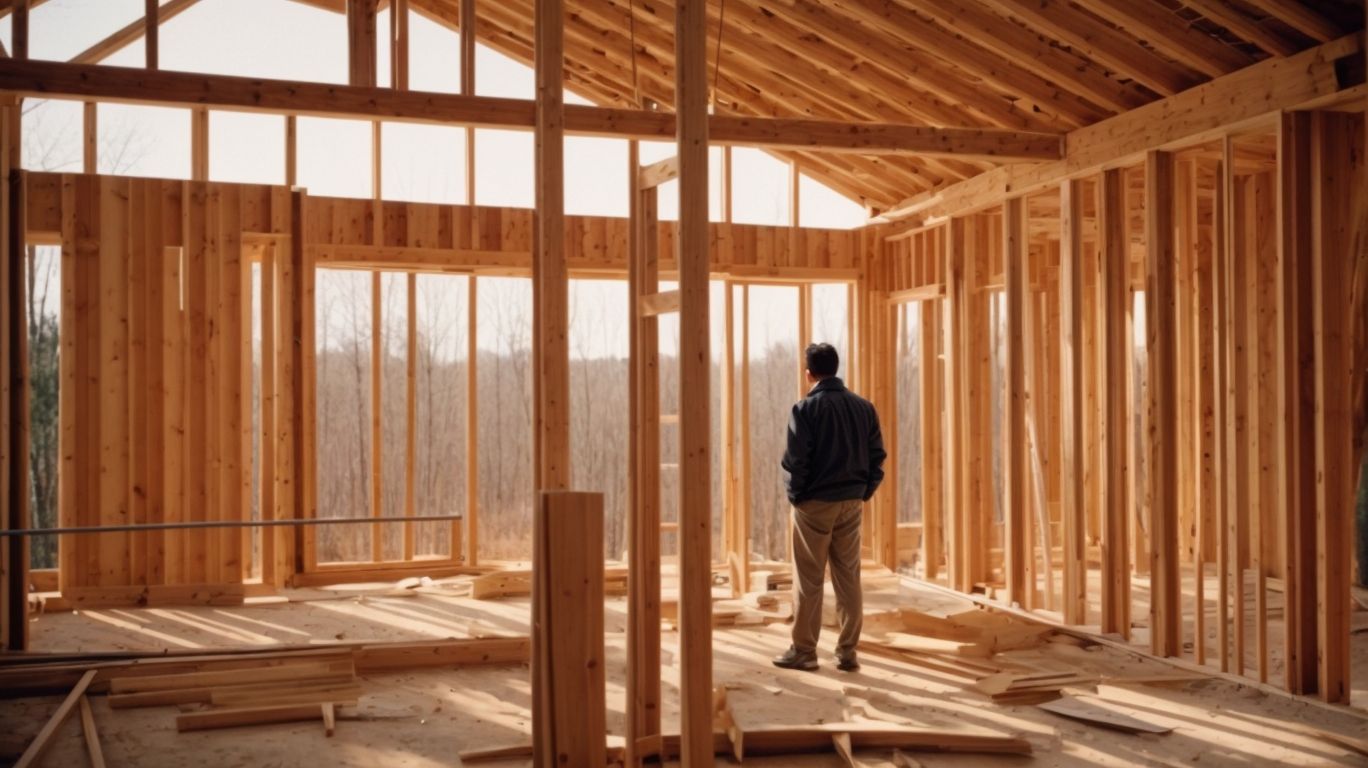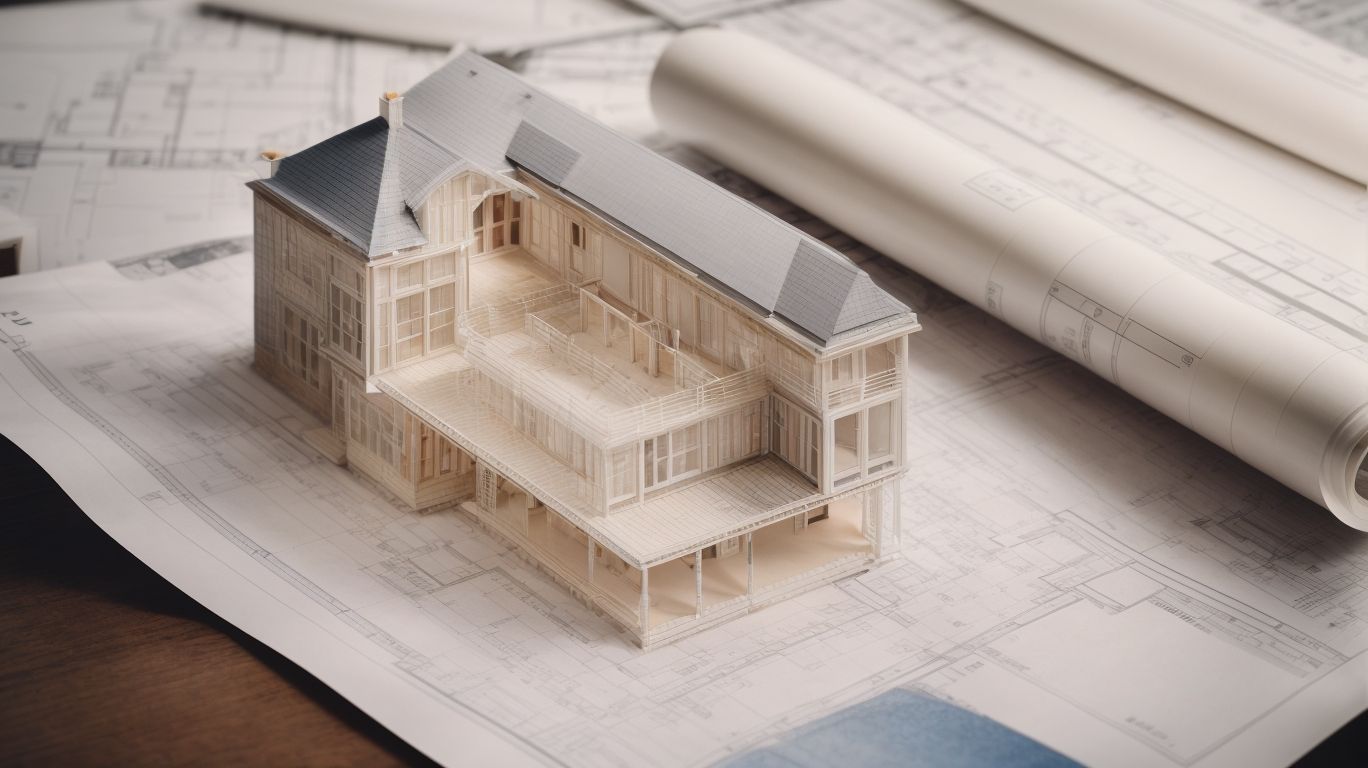
The Role of a Structural Engineer in Home Remodeling Projects
Are you considering a home remodeling project? If so, you may want to consider enlisting the expertise of a structural engineer. But what exactly does a structural engineer do, and why are they so important in home remodeling projects?
In this article, we will explore the crucial role that structural engineers play in ensuring the safety and success of home renovation projects. From the initial inspection to designing solutions and obtaining permits, we will also discuss the steps involved in a structural engineering analysis for home remodeling.
We will delve into the benefits of hiring a structural engineer, and what to look for when selecting one for your project. We will offer tips on how to effectively collaborate with a structural engineer to ensure the best possible outcome for your home remodeling project.
So, if you want to ensure the structural safety, save time and money, and benefit from expert knowledge and expertise, read on to learn more about the role of a structural engineer in home remodeling projects.
What Is a Structural Engineer?
A structural engineer is a professional responsible for ensuring the structural integrity and stability of buildings and infrastructure within the parameters of building codes and regulations. They possess extensive engineering expertise and are adept at interpreting architectural drawings to execute sound structural designs.
A structural engineer is an essential part of construction projects, utilizing their engineering knowledge to collaborate with architects and contractors. Their focus is on ensuring precise and efficient execution of designs. They possess expertise in building materials, load calculations, and understanding of architectural designs, allowing them to create safe and durable structures.
One of the key responsibilities of a structural engineer is to ensure that the construction adheres to safety standards and regulatory requirements. This guarantees the stability and safety of the built environment, making their role crucial in the overall success of a project.
What Does a Structural Engineer Do?
A structural engineer is tasked with assessing and ensuring the stability of buildings, including the evaluation of load-bearing walls, the selection of construction materials, and the examination of the foundation’s structural integrity.
Why Is a Structural Engineer Important in Home Remodeling Projects?
A structural engineer plays a pivotal role in home remodeling projects by ensuring compliance with building regulations, obtaining necessary permits, and creating renovation designs that meet construction standards and safety regulations.
Their expertise in assessing the structural integrity of homes and developing comprehensive renovation plans enables homeowners to proceed with their remodeling projects confidently.
In addition to ensuring that the proposed changes adhere to local building codes, a structural engineer also offers valuable insights into optimizing space utilization and integrating modern design features while maintaining structural stability.
Their involvement significantly reduces the risk of potential issues and ensures that the remodeling process progresses smoothly and safely.
What Are the Common Home Remodeling Projects That Require a Structural Engineer?
Several common home remodeling projects necessitate the expertise of a structural engineer. These include developing comprehensive remodeling plans, conducting thorough structural assessments, and establishing a feasible renovation timeline.
For tasks such as room additions, major alterations, or modifications that affect the existing structure, the involvement of a structural engineer is crucial. They are responsible for ensuring that the remodeling plans are structurally sound and comply with building codes.
The structural assessment conducted by the engineer helps identify potential challenges and assesses the integrity of the existing structure, providing guidance for the renovation process. Working with a structural engineer to establish a realistic renovation timeline can aid in efficient project management and ensure the safety and stability of the remodeled home.
What Are the Steps Involved in a Structural Engineering Analysis for Home Remodeling?
The structural engineering analysis for home remodeling encompasses essential steps, including thorough inspections, precise load calculations, detailed renovation specifications, and rigorous building inspections to ensure structural viability.
This comprehensive process starts with an initial site inspection to evaluate the existing structure’s condition and identify any potential structural weaknesses or areas for improvement.
Following this, engineers conduct load calculations to determine the maximum weight the renovated structure can support, ensuring safety and stability.
Renovation specifications are then meticulously crafted, outlining the scope of work and materials to be used.
Subsequently, building inspections are performed at different stages of the remodeling project to verify adherence to the specified renovation plans and to ensure the structural integrity of the newly modified home.
Initial Inspection
The initial inspection conducted by a structural engineer marks the commencement of the meticulous renovation process. This involves providing professional advice and identifying potential renovation challenges that need to be addressed.
This crucial step ensures that all structural aspects of the property are carefully assessed, allowing for the formulation of a comprehensive renovation plan. The professional advice offered during this stage guides the renovation project towards adherence to safety standards and optimal structural integrity.
The identification of potential renovation challenges at this early stage can help in strategizing solutions, thereby preventing costly setbacks later in the renovation process. This approach sets the foundation for a successful and well-executed renovation endeavour.
Structural Analysis and Calculations
The structural analysis and calculations performed by a structural engineer involve meticulous load calculations and the consideration of structural modifications, integrating advanced construction techniques to ensure optimal structural integrity.
This process entails a comprehensive evaluation of the structural elements, including beams, columns, and foundations, to determine their capacity to withstand various loads and stresses.
The engineer utilizes advanced construction techniques such as composite materials, seismic retrofitting, and innovative reinforcement methods to enhance the structural integrity and ensure the safety and longevity of the building. The integration of these techniques enables the engineer to address potential weaknesses and implement tailored solutions for sustainable and resilient structures.
Designing Solutions
Designing solutions is a critical task for a structural engineer. It involves the development of renovation recommendations and the implementation of innovative building techniques to facilitate effective structural renovation.
This process requires careful consideration of the existing structural conditions, building codes, and environmental impact. By integrating innovative building techniques such as seismic retrofitting, energy-efficient materials, and sustainable construction practices, the structural engineer aims to enhance the overall performance and longevity of the renovated structure.
The generation of renovation recommendations involves thorough inspections, structural analysis, and collaboration with architects and construction teams to ensure a successful and sustainable renovation project.
Obtaining Permits
Obtaining permits is a crucial component of a structural engineering analysis. This process requires careful oversight of construction activities and the submission of accurate renovation specifications to comply with regulatory requirements.
By obtaining permits, construction activities can align with safety standards and local building codes. It also allows for proper documentation and inspection to ensure that the renovation specifications meet necessary criteria.
Obtaining permits facilitates accountability and transparency throughout the construction process. This helps to mitigate potential risks and ensures the structural integrity of the building. Construction supervision plays a pivotal role in ensuring that the approved renovation specifications are followed meticulously, maintaining the safety and compliance of the renovation project.
What Are the Benefits of Hiring a Structural Engineer for Home Remodeling Projects?
Hiring a structural engineer for home remodeling projects yields numerous benefits, including efficient project management, adherence to renovation timelines, and compliance with safety regulations.
Our team brings a wealth of knowledge and expertise in understanding the structural integrity of buildings. This enables us to effectively manage your renovation project from start to finish.
We prioritize keeping your project on track and minimizing disruptions by ensuring that the renovation progresses according to the planned timeline. With our in-depth understanding of safety regulations, you can trust that your remodeling will be done with utmost caution, prioritizing the well-being of those residing in the home.
Ensures Structural Safety
A structural engineer ensures structural safety by providing expertise in designing robust structural support systems and implementing advanced construction methods to uphold the highest standards of structural safety.
Their proficiency in analyzing complex structural requirements and determining the most suitable materials allows them to create reliable and resilient structures. They also have an in-depth understanding of load-bearing capacities, ensuring the safety and stability of their designs.
Furthermore, by staying up-to-date with the latest advancements in construction technology, they are able to integrate innovative techniques such as seismic retrofitting and sustainable building practices. This not only enhances the overall safety and durability of the built environment, but also showcases their commitment to staying ahead in the industry.
Saves Time and Money
Hiring a structural engineer for home remodeling projects leads to significant time and cost savings. They provide meticulous oversight of the renovation budget, optimize the selection of construction materials, and streamline the renovation process.
Their involvement ensures that the allocated renovation budget is utilized efficiently, preventing unnecessary expenses and delays.
By carefully selecting construction materials based on durability and cost-effectiveness, they contribute to lasting quality while also reducing overall project expenditure.
Their expertise allows for the streamlining of the renovation process, enhancing productivity and minimizing disruptions, ultimately leading to a more efficient and cost-effective home remodeling project.
Provides Expertise and Knowledge
A structural engineer brings valuable expertise and knowledge to home remodeling projects, offering innovative engineering solutions, comprehensive renovation guidelines, and rigorous adherence to construction standards.
Their ability to provide innovative engineering solutions ensures that the structural integrity of a building is maintained during renovation.
Their comprehensive renovation guidelines focus on optimizing space, improving functionality, and ensuring safety. Their meticulous adherence to construction standards guarantees that all structural modifications meet industry regulations and best practices, delivering peace of mind to homeowners undertaking renovation projects.
What Should You Look for in a Structural Engineer for Your Home Remodeling Project?
When selecting a structural engineer for your home remodeling project, it’s important to consider their credentials, relevant experience, and communication and collaboration skills. These factors will contribute to a successful partnership.
Credentials, such as professional licensure and certifications, are essential indicators of a structural engineer’s expertise and adherence to industry standards.
Their relevant experience in similar projects showcases their ability to navigate the complexities of structural designs and solutions.
Effective communication and collaboration skills are crucial for seamless coordination with architects, contractors, and other professionals involved in the remodeling process. This ensures that every aspect of the project aligns with your vision and meets regulatory requirements.
Credentials and Experience
When assessing a structural engineer, it is essential to evaluate their credentials, ensuring they possess the necessary engineering expertise and familiarity with local building codes to tackle the intricacies of home remodeling projects.
The selection of a structural engineer is a critical decision, as their expertise influences the structural integrity and safety of a project.
An experienced engineer brings valuable insights into building regulations, ensuring that the construction adheres to industry standards. Their proficiency in understanding local building codes not only streamlines the permitting process but also guarantees compliance with structural requirements.
These qualifications contribute to the successful and safe completion of construction and renovation projects.
Communication and Collaboration Skills
Effective communication and collaboration skills are paramount for a structural engineer, as they need to seamlessly coordinate with project stakeholders and articulate detailed renovation specifications to ensure project success.
Clear communication with architects, construction teams, and clients is essential for aligning everyone’s understanding of the project’s goals and constraints.
Collaboration skills enable the structural engineer to work hand-in-hand with other professionals, leveraging their expertise to develop innovative solutions and address any emerging challenges during the renovation process.
Without effective communication and collaboration, projects can encounter delays, misunderstandings, and even costly errors that affect the overall success of the renovation.
Familiarity with Local Building Codes
A structural engineer must possess a deep familiarity with local building codes, safety standards, and advanced construction methods to navigate the intricate landscape of home remodeling projects.
Structural engineers play a crucial role in ensuring that building projects meet all necessary building regulations and safety standards. This is essential for guaranteeing the structural integrity and safety of the building.
Their expertise in advanced construction methods allows them to implement innovative and efficient solutions while still ensuring compliance with industry standards. Without their knowledge and skills, there could be significant risks to the structural stability of the building and potential legal liabilities. Therefore, their thorough understanding of local building codes and safety standards is paramount in delivering safe and compliant structures.
How Can You Work Effectively with a Structural Engineer for Your Home Remodeling Project?
To ensure a successful collaboration with a structural engineer for your home remodeling project, it is crucial to actively engage in the renovation process, facilitate construction supervision, and proactively explore innovative engineering solutions.
Active involvement in the renovation process allows you to communicate your vision effectively, enabling the structural engineer to understand your design preferences and functional requirements.
By fostering a collaborative relationship, you can work with the engineer to integrate construction supervision, ensuring that the project adheres to safety standards and progresses smoothly.
This open communication also paves the way for exploring innovative engineering solutions, allowing for creative problem-solving and cutting-edge advancements in your renovation.




No Comments